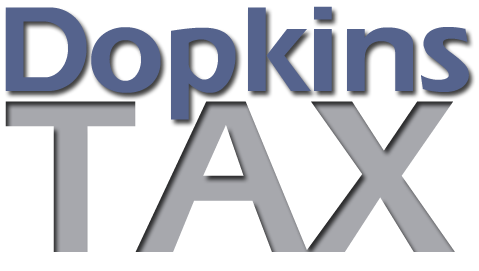How does the PATH Act affect you as an Individual?
March 24, 2016 | Authored by Jill E. Colombo CPA
 March 24, 2016 – The Protecting Americans from Tax Hikes Act (PATH) of 2015 signed into law on December 18, 2015 provided for changes to certain tax provisions for individuals.
March 24, 2016 – The Protecting Americans from Tax Hikes Act (PATH) of 2015 signed into law on December 18, 2015 provided for changes to certain tax provisions for individuals.
Child Tax Credit (CTC)
The enhanced child tax credit was made permanent by setting the threshold dollar amount at an unindexed $3,000 for tax years beginning after December 18, 2015. The child tax credit allows taxpayers to claim a $1,000 tax credit for each qualifying child under age 17, that the taxpayer can claim as a dependent. The credit phases out when income exceeds certain thresholds. To the extent the CTC exceeds the taxpayer’s tax liability, the taxpayer is eligible for a refundable credit equal to 15% of earned income in excess of a threshold dollar amount. Under pre-Act law, through 2017, the threshold dollar amount was an unindexed $3,000 and was scheduled to rise to $10,000 indexed for inflation. In addition, the Act prohibits an individual from retroactively claiming the CTC by amending a return (or filing an original return late) for any prior year in which the individual or a qualifying child did not have an individual tax identification number.
American Opportunity Tax Credit
The enhanced American Opportunity Tax Credit was made permanent. The American Opportunity Tax Credit enhances the Hope Scholarship Credit up to $2,500 for four years of post-secondary education, and increased the beginning of the phase-out amounts to $80,000 (single) and $160,000 (married filing jointly). In addition, for expenses paid after December 31, 2015 for education provided in academic periods after that date, higher education institutions are required to report on Form 1098-T only qualified tuition and related expenses actually PAID – rather than choosing between amounts paid and amounts billed as was previously the law.
Enhanced Earned Income Credit (EITC)
The Enhanced Earned Income Credit was made permanent. Certain low and moderate-income workers may be eligible for refundable EITC depending on the taxpayer’s earned income and the number of qualifying children and is calculated as a percentage of an inflation-adjusted earned income level.
Teacher supply deduction
Eligible elementary and secondary school teachers could claim an above-the-line deduction for up to $250 per year of expenses incurred for books, certain supplies, computers and other equipment used in the classroom for years before January 1, 2015. The ACT brings back this deduction and makes it permanent. In addition, professional development expenses are considered eligible for this deduction. Without this provision, unreimbursed professional development expenses would only be deductible subject to the 2% of adjusted gross income floor.
Itemized state and local tax deduction
Taxpayers who are eligible to itemize deductions can continue to take advantage of the deduction for state and local sales taxes paid in lieu of a deduction for state and local income taxes. This choice was unavailable for tax years beginning after December 31, 2014 but was made permanent with PATH.
Other individual tax credits the Act made permanent:
- Increase in Excluded Employer-Provided Mass Transit and Parking Benefits Made Permanent
- Liberalized Rules for Qualified Conservation Contributions Made Permanent
- Nontaxable IRA Transfers to Eligible Charities Made Permanent
A few individual tax provisions were only extended through 2016.
Education expenses
For example, the above-the-line deduction for higher education expenses was retroactively extended through 2016. For tax years beginning after December 31, 2014, the maximum deduction is $4,000 for an individual whose AGI doesn’t exceed $65,000 (single)/$130,000 (joint).
Deductible Mortgage Insurance Premiums
Mortgage Insurance Premiums as Deductible Qualified Residence Interest Retroactively Extended Through 2016. Effective for amounts paid or accrued after Dec. 31, 2014, the Act retroactively extends this provision for two years so that a taxpayer can deduct, as qualified residence interest, mortgage insurance premiums paid or accrued before Jan. 1, 2017 (and not properly allocable to any period after 2016).
In addition, the exclusion for discharged home mortgage debt was retroactively extended through 2016.
Nonbusiness energy property credit
The nonbusiness energy property credit was retroactively extended for two years, which applies to property placed in service after December 31, 2014 and before January 1, 2017. The Act allows a credit of 10% of the amount paid or incurred by the taxpayer for qualified energy improvements, subject to new requirements, up to $500.
The PATH Act also included many non-extender tax provisions, the following of which are individual related:
- Exclusion for Work Colleges Program Payments – amounts received in tax years beginning after date of enactment, the Acts exempts from gross income any payments from certain work-learning-service programs that are operated by a work college.
- Delayed Refunds Where Taxpayer Claims Earned Income or Additional Child Credit – effective for credits or refunds made after Dec. 31, 2016, no credit or refund for an overpayment for a tax year will be made to a taxpayer before the 15th day of the second month following the close of that tax year (generally February 15), if the taxpayer claimed the EITC or additional child tax credit on the tax return.
- Rollover Allowed From Retirement Plans to SIMPLE Accounts – for contributions after the date of enactment, the Act allows a taxpayer to roll over amounts from an employer-sponsored retirement plan (e.g., 401(k) plan) to a SIMPLE IRA, if the plan has existed for at least two years.
- Requirements for the Issuance of Individual Taxpayer Identification Numbers – Individuals who were issued ITINs before 2013 are required to renew their ITINs on a staggered schedule between 2017 and 2020. An ITIN will expire if an individual fails to file a tax return for three consecutive years.
- Changes to 529 Plan Distribution Rules
Confused about how the changes in the PATH Act affect you?
Contact Jill Colombo at jcolombo@dopkins.com or your Dopkins Tax Advisor to discuss.
Related blogs

About the Author
Jill E. Colombo CPA
Jill specializes in corporate tax compliance and preparation services for businesses and individuals. She has significant experience with multi-state tax corporate issues, employee benefit plan compliance and international tax matters. Her projects include tax planning, international compliance and tax structure consulting services.

